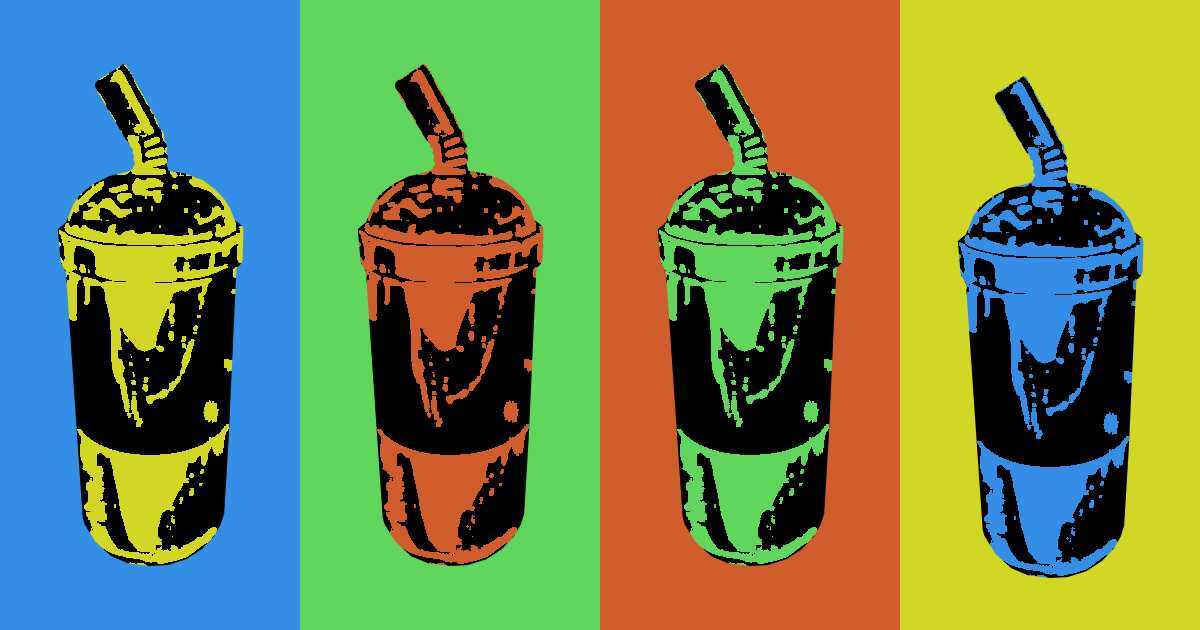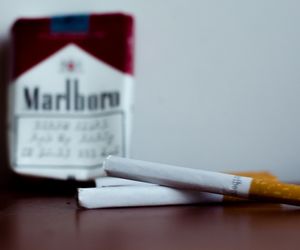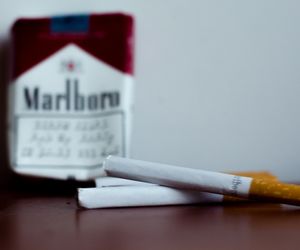Four months after vape ban, businesses pivot as black market thrives
Former vape outlets scramble as customers find alternatives.

Artwork: Dosain
16 Apr 2025, 17:57
Clouds of sweet-scented vapour perpetually hung in the air at Salt Bar as customers lounged on a crimson couch, testing the latest vape devices and savouring new flavours. In the same shop four months later, the same cheerful Filipina salesgirl now carefully measures droplets into tiny bottles.
With the same care she once took to explain the differences between vape pods, Joy helps customers pick their preferred scents and prepare their own perfume, mixing base and fragrance chemicals. Graffiti-style murals that once celebrated vape culture have been replaced by minimalist shelves, a more fitting deco for the shop's new identity as Barfume, a custom perfume boutique.
The overnight transformation of the small outlet near Malé’s eastern corner reflects the predicament of shops that scrambled to reinvent themselves when the government's vaping ban took effect on December 15, forcing either closure or a hard pivot to entirely different businesses.
One of the few that bounced back is Techno Hub, a shop on the opposite northwest corner of the capital, previously known to loyal customers as Smoke Hub. It now advertises rice cookers, fans, Samsung tablets, Playstations, air fryers and nicotine patches to 1,827 followers on a renamed Viber community chat.
“Smoke Hub is a business I started by selling vapes online, and expanded to a physical shop. It was only one year and one month after we opened the shop that the government made the decision to ban vape products,” the owner told the Maldives Independent.
“As a small business, the government’s ban was very difficult, it was not done with enough of a notice period like how it’s done in other countries, only giving two or three months, which was not enough to even sell out the remaining stock.”
Two foreign staff hired to do sales were laid off and “now it’s just me and my stepfather who’s running this shop and doing deliveries,” he said.
In November, when the price of a pack of cigarettes doubled from MVR 110 (US$ 7) to MVR 250 as the government hiked tobacco tariffs, the shop tried selling nicotine patches. But there was not much demand.
“It’s currently out of stock but it didn't sell that well. Our former customers, I know they still continue to buy from different places and they still vape. The government hasn't been able to stop vape use, they just managed to stop the legally registered businesses that sold vapes,” he suggested.
The ban followed lobbying from health and sports associations. Nearly 85 percent of deaths in the Maldives are caused by non-communicable diseases, for which tobacco was the biggest risk factor, said the Maldives NCD Alliance, a group of NGOs including the Cancer Society.
Parents, outraged by the discovery of a box full of vapes in a Malé school, petitioned the government for urgent action. The education ministry confiscated “thousands of vape devices” from schools over the past year, Homeland Security Minister Ali Ihusan revealed at a press briefing in October.
“E-cigarettes are a threat to our smoke-free schools because the devices look like pens and everyday items," Imaduddin School principal Dr Ali Mamdhooh told Malaysia's The Star in February.
“Teachers may not be able to recognise an e-cigarette even if a student brings it to school. That’s why we will be installing metal detectors in our school."
Users find workarounds
Individuals caught vaping face a fine of MVR 5,000 (US$ 324). According to the police, MVR 123,000 was collected as fines during March.
The ban also came with heftier fines of US$ 3,240 for imports and US$ 1,300 for sales, driving vaping underground and spawning a thriving black market, a predictable consequence with one in four Maldivians above 15 years of age estimated to be smokers.
When the ban came into force, most smokers either stockpiled supplies, found illicit sellers, or reluctantly returned to traditional cigarettes, raising questions about whether the intended public health outcomes could be achieved.
The Maldives Independent spoke to six smokers, three of whom continue buying vapes on the black market, one who switched back to cigarettes and two who quit smoking. Two non-smokers knew friends who have continued vaping.
“I stocked up before the ban but I'm almost out now. Lasted four months. Hoping I'll find someone selling online before I run out,” said a 36-year-old man from Malé.
“No one I know has actually stopped. It’s still pretty easy to get vapes, just a bit more expensive now, though still cheaper than cigarettes. And honestly, it’s still a better option than going back to smoking which is objectively more harmful,” a 34-year-old woman said.
A 22-year-old from a southern island said none of his friends have stopped smoking or vaping.
“They still smoke Nanostix, which is still available but a bit more expensive – it’s for MVR 250 now. Or they roll tobacco,” he said. Nanostix, one of the most widely used vape brands, was sold widely for MVR 95 before the ban.
The black market has a starting price of MVR 470 for disposable vapes.
A 28-year-old man recounted how he quit cigarettes and switched to vaping five years ago. “They were easy to get that quick rush I needed especially during stressful times managing work, studies, and other responsibilities,” he explained.
He was hoping to gradually wean off the vaping habit when the ban was announced. Overcome with anxiety, he stocked up like most other people.
“After the ban was effective and my usual vape guy ran out of his remaining now ‘bootleg stock,’ I didn't know what to do. I had to resort back to cigarettes, but their prices had hiked exorbitantly by then too,” he recalled.
“I'm still on a few cigarettes a week, and now I regularly go have a shisha with my friends. Mind you, shisha was something I had quit five years ago when I discovered vapes.”
Many smokers also switched to cheaper illegally smuggled brands or the option of rolling tobacco. Long lines still stretch outside the Root shop in Malé every day, one of two businesses that sell the tobacco pouches.
Government doubles down
As smokers adapted on the street level, the government's cessation support mechanisms were still taking shape.
On December 2, the president approved a cabinet decision to set up clinics nationwide under a four-year “master plan for tobacco cessation.” But on December 19, four days after the ban, Health Minister Abdulla Nazim Ibrahim said the government was still in the process of formulating the master plan, which was expected to be completed in early 2025.
Out of an estimated 113,414 smokers, only 348 people sought help from tobacco cessation clinics between February 2024 to February 2025 (87 from IGMH, 60 from Dhamanaveshi, 46 from Hulhumalé Hospital, and 155 from health centres on other islands), according to the health ministry.
A hotline (1676) currently offers instructions on seeking nicotine patches and gum through the Aasandha insurance scheme.
On Sunday, President Dr Mohamed Muizzu approved a generational ban on tobacco use to prohibit smoking for individuals born after January 1, 2007.
In the second episode of his new podcast earlier this month, the president acknowledged the unpopularity of the vape ban and hiked tobacco tariffs. Many people have messaged with complaints, including parents who were providing financial support to adult children who could no longer afford their smoking habit, he said. But incremental tax increases would not solve the problem and would only benefit cigarette importers, he contended.
“I urge those who import and sell cigarettes to give up that business, do something else. This isn’t something you should do. This is a small country. This isn’t a place with millions of people,” he said. “Why do you need to do that here? Wouldn’t it be better if we save our small community from this?”
Discussion
No comments yet. Be the first to share your thoughts!
No comments yet. Be the first to join the conversation!
Join the Conversation
Sign in to share your thoughts under an alias and take part in the discussion. Independent journalism thrives on open, respectful debate — your voice matters.



